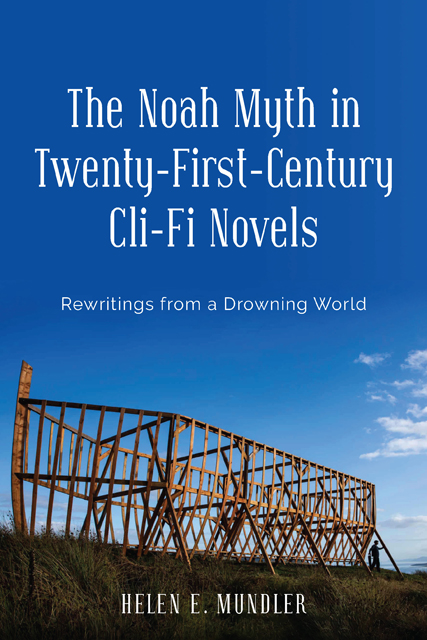Book contents
- Frontmatter
- Dedication
- Epigraph
- Contents
- Acknowledgments
- List of Abbreviations
- Introduction
- 1 An Odd Sort of Cli-Fi? Nathaniel Rich’s Odds Against Tomorrow
- 2 “Hadn’t mankind done it before—started from scratch?” Reinterpreting Visions of Past and Future in Margaret Atwood’s Maddaddam trilogy
- 3 Watering Down? Clare Morrall’s When the Floods Came
- 4 The Archive and After: A Kaleidoscopic Reading of Maggie Gee’s The Flood
- Conclusion
- Works Cited
- Index
3 - Watering Down? Clare Morrall’s When the Floods Came
Published online by Cambridge University Press: 17 December 2022
- Frontmatter
- Dedication
- Epigraph
- Contents
- Acknowledgments
- List of Abbreviations
- Introduction
- 1 An Odd Sort of Cli-Fi? Nathaniel Rich’s Odds Against Tomorrow
- 2 “Hadn’t mankind done it before—started from scratch?” Reinterpreting Visions of Past and Future in Margaret Atwood’s Maddaddam trilogy
- 3 Watering Down? Clare Morrall’s When the Floods Came
- 4 The Archive and After: A Kaleidoscopic Reading of Maggie Gee’s The Flood
- Conclusion
- Works Cited
- Index
Summary
Living on “After the End” in Clare Morrall’s Flooded Britain
Clare Morrall’s novel is the only work analyzed here in which all the events take place after the chronotope-defining disaster. Roza, the central character, is of the generation after the catastrophe, like the children born to the survivors of JUVE in the Cobb House, and to the families who move into the Flatlands, whose stories are not told. There is no before/after switch between “normal” life and an apocalypse, albeit a local one, as in Odds Against Tomorrow; neither is there an alternation between before and after as in Atwood’s trilogy.
The novel centers on the Polanski family, who live in a block of flats in an almost entirely deserted Birmingham, in the West Midlands of England, apparently some decades into the twenty-first century (one clue as to temporality is that driverless cars were common in the pre-disaster world, WFC, 123). As the plural in the title suggests, this is a novel in which there are multiple floods rather than just one flood event, and these are understood to be a result of climate change, and perhaps obliquely a punishment for it, although the frame of reference of this rewriting of the Noah myth is very secular.
The point of departure of this novel is comparable to some extent to the Atwood trilogy, in that the Polanskis have survived Hoffman’s—a naturally-occurring pandemic virus which has killed many, and also rendered large numbers of people infertile. The virus has significantly reduced world population, and particularly that of Britain. However, this is a novel of double disaster, in that the pandemic is joined by floods which render normal life impossible for weeks at a time. This doubling reflects not only the context of the multiple upheavals and dangers of the Anthropocene referenced in the first two chapters, but also a dual causality inherent to the Noah myth itself. John Withington points out that in the biblical account, while the flood was caused by forty days of rain, “according to Genesis, something else happened: ‘all the fountains of the great deep’ were ‘broken up’” (Genesis 7:11, Withington, 10).
- Type
- Chapter
- Information
- The Noah Myth in Twenty-First-Century Cli-Fi NovelsRewritings from a Drowning World, pp. 65 - 88Publisher: Boydell & BrewerPrint publication year: 2022

